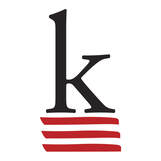|
Let me take you back to your high school English class. Don’t worry, the rest of high school you can continue to forget! Now if you will recall that series of classroom lectures on rhetorical appeals . . . remember that? Ethos, Pathos, and Logos? When I bring these up with authors, many of them ask how these could possibly apply to their writing. They write fiction/memoir/ biography/business/children’s . . . etc., not essays or academic works. In reality, you likely use them without even thinking about it. But putting a little thought behind them can really grow your writing. You’ll even be surprised how helpful they can be in daily life if you think to apply them. Let’s break them down.
Pathos Pathos is often the most relatable for authors. This is an appeal to the reader’s sense of love, fear, sympathy, hate, and any other emotion or perspective you want your audience to experience. Pathos is how you get your reader to connect emotionally with your characters and feel that need to find out what happens next, that need to read the next book. Here are some ways that you can consider Pathos for your writing:
Logos This is another appeal that can be readily identified, even in novels. In academic writing, this is the logical presentation of evidence to support your thesis and convince the reader of your argument. In creative writing, however, you can identify this in the structure of your plot and in the structure of your individual scenes. There must be a logical flow to your storyline, as well as logical rules to how things function. Let’s look at some examples of how to use Logos in your writing:
Ethos Ethos is the one appeal that is more elusive in creative writing. Traditionally it means the author’s perspective, background, or credibility—what makes an author qualified to speak on a subject. While absolutely applicable to nonfiction writers, especially of the professional/technical/academic variety, it is less relevant in writing fiction. However, it can be applied to characters in your novel as well as in marketing your book. Let’s take a look at how it might be applied:
Other Rhetorical Appeals There are two other logical appeals, though they are used far less frequently. Telos is the purpose of a speech, and keeping it in mind for characters can be very helpful. What is their purpose or intention in what they are saying; what is their motive? Kairos is the other logical appeal that gets lost in the mix today. This is using your setting—time and place—to its greatest effect. In terms of creative writing, it can be used to determine how certain elements play out. Maybe your character’s big speech would be more effective in a different setting or at a different point in the story. Reflect on motive and setting together as you are editing your story to make sure you are getting the most out of your scenes. Final Thoughts Whether you plan out your books in advance or free-write them with only a bare minimum of structure in place, Ethos, Pathos, and Logos can be useful tools in your writing arsenal. If you are a planner, use them to develop your outline and structure the development of your story and characters. If you are a free-writer, keep them in mind as you write and then use them as an editing tool. Review your draft and look at it analytically. Develop your story, characters, and scenes with the active intention to use all three collaboratively and in new, creative ways. Don’t forget, you can also ask your beta readers and editors to keep these in mind as they read and give feedback. Develop a list of questions for readers to consider either while reading or after finishing. Do the events play out in a logical way? Are the motives behind why characters made certain decisions clear? Do the characters elicit the correct response from your readers? Don’t be discouraged if your readers have differing reactions, that is completely normal. Instead, look for trends and then address anything that seems to be a consistent issue. Now, go out and Ethos, Pathos, and Logos your way to writing success! ***First published on OC-Writers.com
0 Comments
Your comment will be posted after it is approved.
Leave a Reply. |
AuthorKimberly Peticolas is an Editor and Publishing Consultant. She lives in Broomfield, Colorado. Archives
September 2018
Categories |

 RSS Feed
RSS Feed
